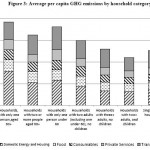Site search:
-
What’s new?
Energy for London Tags
Brent Buildings Camden Carbon Emissions CHP Cities Climate Adaptation Community Heating Community Initiatives Croydon Data DECC Decentralised Energy Distribution ECO Energy Costs Energy Efficiency Enfield FIT Fuel Poverty Funding Green Deal Hackney Haringey Housing Islington Lambeth Library Local Authorities Mayor Newham Ofgem Olympics Photovoltaics Planning RE:FIT RE:NEW Renewable Energy Retrofit Southwark Tower Hamlets Transport Waltham Forest Waste WestminsterEnergy Archives:
- February 2021 (1)
- January 2021 (15)
- December 2020 (15)
- November 2020 (9)
- October 2020 (3)
- August 2020 (5)
- July 2020 (3)
- June 2020 (4)
- April 2020 (10)
- March 2020 (5)
- February 2020 (2)
- January 2020 (3)
- October 2019 (1)
- September 2019 (4)
- August 2019 (2)
- July 2019 (1)
- August 2018 (1)
- November 2016 (8)
- October 2016 (8)
- September 2016 (2)
- August 2016 (8)
- July 2016 (14)
- April 2016 (12)
- March 2016 (16)
- February 2016 (8)
- January 2016 (4)
- December 2015 (1)
- November 2015 (1)
- October 2015 (16)
- September 2015 (3)
- June 2015 (1)
- May 2015 (1)
- April 2015 (1)
- March 2015 (1)
- February 2015 (1)
- January 2015 (1)
- December 2014 (18)
- November 2014 (4)
- August 2014 (8)
- July 2014 (7)
- June 2014 (25)
- May 2014 (8)
- April 2014 (4)
- March 2014 (12)
- February 2014 (7)
- January 2014 (13)
- December 2013 (11)
- November 2013 (15)
- October 2013 (15)
- September 2013 (18)
- August 2013 (5)
- July 2013 (20)
- June 2013 (33)
- May 2013 (8)
- April 2013 (16)
- March 2013 (25)
- February 2013 (14)
- January 2013 (20)
- December 2012 (23)
- November 2012 (23)
- October 2012 (25)
- September 2012 (14)
- July 2012 (12)
- June 2012 (43)
- May 2012 (20)
- April 2012 (8)
- March 2012 (40)
- February 2012 (39)
- January 2012 (40)
- December 2011 (22)
- November 2011 (40)
- October 2011 (33)
- September 2011 (48)
- August 2011 (40)
- July 2011 (58)
- June 2011 (41)
- May 2011 (80)
- April 2011 (38)
- March 2011 (33)
- February 2011 (25)
- January 2011 (24)
- December 2010 (3)
- November 2010 (7)
- October 2010 (6)
- September 2010 (7)
- August 2010 (1)
- July 2010 (2)
- June 2010 (4)
- May 2010 (1)
- March 2010 (3)
- February 2010 (3)
- December 2009 (5)
- November 2009 (2)
- October 2009 (3)
- July 2009 (3)
- June 2009 (1)
- April 2009 (1)
- March 2009 (1)
- February 2009 (1)
- January 2009 (1)
- December 2008 (2)
- October 2008 (1)
- September 2008 (1)
- July 2008 (1)
- March 2008 (2)
- January 2008 (2)
- October 2007 (1)
- September 2007 (3)
- July 2007 (1)
- March 2007 (1)
- February 2007 (3)
- November 2006 (3)
- August 2006 (1)
- February 2006 (1)
- May 2005 (1)
- February 2004 (1)
Library
Briefing on Sustainable Energy & Planning
August 2011: The Local Government Group’s Planning Advisory Service (PAS) has updated its councillor briefing on sustainable energy. This briefing covers:
- What is sustainable energy?
- Jargon busting
- What does planning deal with and what can be expected from applicants
It provides a useful introduction of many of the key issues raised in relation to the challenges of delivering safe, secure and reliable energy systems at a time of considerable change in the UK energy market.
Review of the Green Doctor Programme
25 August 2011: The Green Doctor programme “aims to tackle fuel poverty amongst vulnerable residents by providing home visit services in deprived neighbourhoods ” and is being delivered in Islington by Groundwork London. The project was funded by Ebico Trust, the charitable arm of Ebico, the “UK’s only not-for-profit energy supplier‘, and a progress report of work undertaken to date under the programme has just been published.
Councils and community action on climate change
August 2011: Friends of the Earth briefing on the changes needed at the Energy Bill’s Report Stage to drive forward council action on climate change. The briefing sets out that Government needs to provide:
• Clarity about what councils need to do locally through advice from the Committee on Climate Change
• All councils to have a local climate change strategy setting out a plan for energy saving and clean power – involving local residents, businesses, and institutions like schools and hospitals – and Government to support councils to roll out the green action needed
Low Carbon Social Enterprises
August 2011: DECC have just published a study undertaken through the Low Carbon Community Challenge (LCCC) communities programme which evaluates the support given to the 22 community schemes (including the Haringey and Muswell Hill Low Carbon Zone) on establishing social enterprise vehicles for their projects.‘ Download An independent evaluation report examining the Social Enterprise support and guidance needs of Low Carbon Community Challenge projects
Low Carbon Communities Challenge – interim learning
17 August 2011: DECC have just published a report setting out the interim learning from the Low Carbon Communities Challenge (LCCC), a two year programme involving 22 community energy projects, which includes the ‘Haringey and Muswell Hill Low Carbon Zone‘. The LCCC is looking to test different models of community-scale delivery, from projects which are led by community groups through to other projects which involve existing agencies and this report provides some of the learning to date in progressing the various schemes. The report details what worked and what didn’t work when progressing the various projects.
Latest Findings from DECC’s Low Carbon Community Challenge
August 2011: DECC’s Low Carbon Community Challenge (LCCC) was officially launched in February 2010. Amongst the 22 successful applicants supported was one scheme in London – the Muswell Hill Low Carbon Zone, in Haringey, which involves the “installation of photovoltaics on four schools to be used as a learning tool and to encourage behaviour change; a mobile sustainable learning facility; cycle parking and a community renewable energy company that aims to gain funding to generate income for carbon reduction measures in the community.” Winnings projects were given funding of approximately £500,000 each, mainly to install low carbon technologies by March 2010 (phase 1 communities) and March 2011 (phase 2 communities) although the LCCC runs until March 2012.
DECC have today published three reports setting out some of the findings to date from the LCCC, and sharing thoughts from the various community groups on their experience taking forward such projects.
The Low Carbon Communities Challenge: Findings from the engagement support by Dialogue by Design
Analysis by Dialogue by Design of information collected from the community groups throughout the LCCC projects.
LCCC process evaluation: report 1 – application process
LCCC unsuccessful applicants’ feedback about the programme’s application process.
REAP Petite analysis of LCCC
Face-to-face interviews with 4,977 respondents across the Low Carbon Community Challenge (LCCC) areas were conducted in 2010 as part of the LCCC baseline research. This survey yielded considerable attitudinal data.
District Heating Good Practice: Learning from the LCIF
 August 2011: Two London schemes are profiled in the Homes and Communities Agency’s (HCA) Low Carbon Infrastructure Fund (LCIF) programme ‘lessons learned’ report published today. The Fund was set up in 2009 to provide funding for the district heating infrastructure needed to link housing schemes to new and existing low carbon CHP plants.
August 2011: Two London schemes are profiled in the Homes and Communities Agency’s (HCA) Low Carbon Infrastructure Fund (LCIF) programme ‘lessons learned’ report published today. The Fund was set up in 2009 to provide funding for the district heating infrastructure needed to link housing schemes to new and existing low carbon CHP plants.
- LCIF funding provided £3m to develop the spine heat network for the Greenwich Peninsula. The Greenwich Peninsula, with its proposals for more than 10,000 new homes, is part of a larger, mixed-use scheme including commercial, retail, educational and leisure uses. The full combination of works includes two significant CHP pipework ‘spines’ which capture all significant development areas on the Peninsula
- Cranston Estate, Hackney where £0.5m grant funding was provided to install a district heat pipe for the retrofitting of a CHP plant, providing electricity and heat to three high-density housing estates.
Posted in Decentralised Energy, Library, News
Tagged Decentralised Energy, Greenwich, Hackney, Housing
Leave a comment
Air Source Heat Pumps – Friend Or Foe?
August 2011: The AECB have posted on their website a really useful survey of Air Source Heat Pumps (ASHP), a technology which is increasingly being installed in London buildings. The article addresses many of the common questions raised about ASHPs and looks “at possible reasons why the reality seems to have fallen short of the claims, reveals some common pitfalls and advises how to avoid (or remedy) them, and offers some pointers to assessing when a heat pump might be good option – and when something else might be the better option. “
Latest Guidance for FIT Generators
August 2011: Ofgem document for renewable generators with a capacity over 50kW up to 5MW that want to benefit from the Feed-in Tariff (FIT) scheme. It provides an overview of the scheme’s eligibility criteria and explains the process of seeking accreditation.
Better Metering Toolkit
August 2011: The Better Building Partnership (BBP), a collaborative project led by London’s leading commercial property owners and supported by the Mayor of London, has produced a guide designed to support both owners and occupiers in understanding the benefits of installing advanced metering systems in buildings, including the current options available. This and other studies undertaken by the Better Buildings Partnership available to download here.
Simple energy efficiency measures can save around £322 a year
July 2011: Centrica has just published some work they commissioned earlier this year from the Centre for Economics and Business Research (Cebr), which conducted the largest ever independent analysis of natural gas use in British homes based on 40 million meter readings . The report found that customers who adopted a range of simple measures saved on average £322 each year, and saw a 44 per cent fall in their gas use between 2006 and 2010. The research is presented regionally (hence specific London conclusions presented) and some of the outputs include:
- British Gas has a lower proportion of customers in London than other parts of the country
- Appendix E provides British Gas customers average domestic natural gas consumption by postcode in London
- An indication of potential cost savings that can be achieved in London and elsewhere by the adoption of energy efficiency solutions.
Indirect emissions from UK households
 July 2011: New Economics Foundation research paper- The distribution of total greenhouse gas emissions by households in the UK, and some implications for social policy which looks at – for the first time – indirect household greenhouse emissions embodied in the consumption of food, consumer goods and services, including imports. No regional breakdown emissions outputs for London, but still useful analysis on an area which will be increasingly studied.
July 2011: New Economics Foundation research paper- The distribution of total greenhouse gas emissions by households in the UK, and some implications for social policy which looks at – for the first time – indirect household greenhouse emissions embodied in the consumption of food, consumer goods and services, including imports. No regional breakdown emissions outputs for London, but still useful analysis on an area which will be increasingly studied.

